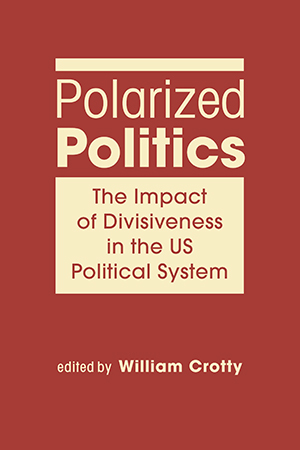
- 2014/409 pages
Polarized Politics:
The Impact of Divisiveness in the US Political System
Hardcover: $55.00
ISBN: 978-1-62637-167-5
What are the consequences of political polarization in the United States? Are citizens' interests adequately represented when divisive politics are the norm? What ideologies—and entrenched institutions—perpetuate these divisions, and what social groups are most affected? Answering these questions, Polarized Politics is a major contribution to our understanding of the causes, evolution, and impact of the politics of divisiveness in the US.







